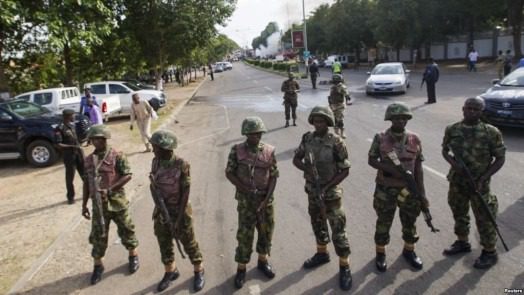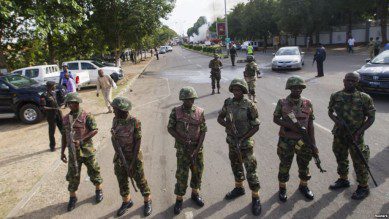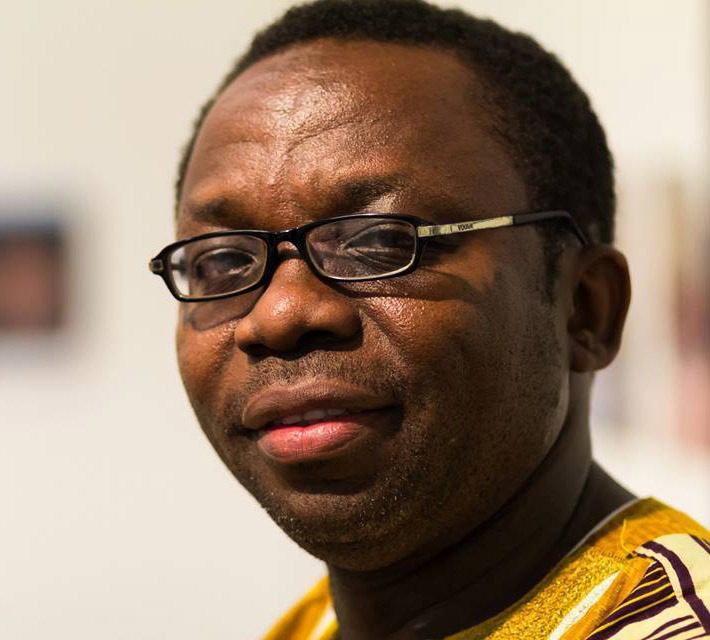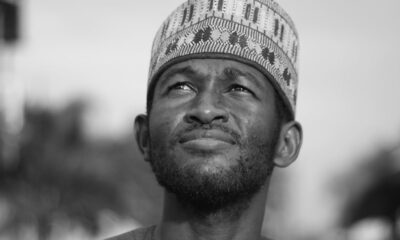Anyone who had dismissed those pictures of Chief of Army Staff, COAS, Lieutenant General Tukur Buratai among troops as cheap propaganda stuff should have had a change of heart by now on account of the other realities that we have since witnessed since those pictures first surfaced. The misconception was largely fuelled by what we have been used to – leaders playing lip service while their very actions sabotaged the system. But General Buratai has proven critics wrong as he has successfully turned around the fortunes of our Army.
It is important that one first understands that concept of the role the Army of any nation plays or should be playing in contemporary times. Traditionally, the Army protects the country against external aggression and thereby safeguards its sovereignty and territorial integrity. But to consign the modern role of the Army to this narrow scope will be akin to regressing to a time when wars were limited to hand to hand combats using swords and shields. The existential threats to nation states have evolved and the failure of the Nigerian Army to similarly evolve in response to trends in the past was responsible for the sorry state it was in before the coming of the incumbent COAS.
The greatest threat to Nigeria’s security in recent times has been the insurgency being waged by terrorist group, Boko Haram, whose fighters were running riot, not just around their stronghold in the North East but were also repeatedly mounting bomb attacks in other parts of the country in daring move that saw them rapidly advancing southwards in their choice of targets. Similar to the erroneous understanding of the role of the military in modern times, some had wrongly seen Boko Haram as a domestic threat but we all know better today that the murderous group is as bad as an invading enemy nation considering the external influence around them.
Fortunately, since General Buratai took the reins of affairs in the Army, Nigeria has been able to defeat the intellectual and guerrilla tactics of Boko Haram. The terror group has been degraded from a group that hosted its flag across a large swathe of the north east to a ragtag band that now resorts to hit and run attacks on soft targets. Although, some critics erroneously overblow the terror group’s capacity in view of these sporadic attacks, they omit to recognise that there has been no Boko Haram leadership that openly claimed responsibility for these attacks as was the case in the past. This could only point to a group that has been dislocated to the extent that it can no longer centrally push its propaganda.
Nigerians must also face the realities that terrorists and terrorists’ organisations do not just dissipate into tiny air when they are defeated. Examples abound worldwide to use for comparison of how long it takes for situation to return to close to normal after an insurgency.
One should therefore give kudos where it is due because in addition to the improvement in the provision of equipment, the leadership style of General Buratai, who leads from the front, has largely motivated out forces to take on the insurgents with greater determination. They find it reassuring to follow the command of a leader who has demonstrated that true discipline comes when no one is above the law. This is the new system under Buratai as he is ready to go extra miles on daily basis with the troops to root out Boko Haram.
The Army under General Buratai has become proactive to the extent that it has taken charge of the various joint operations, whether locally among other services or in operations that involves multinational forces. The impact of this development on other security crises is obvious. There has been remarkable reduction in the number of incidences in Plateau state where faceoffs between Fulani herdsmen and indigenous population. The same goes for Benue state where tension has been significantly doused with the Army’s intervention.
In the Niger Delta, where ex-militant and other criminal elements were beginning to sabotage national assets, the prompt warning from the army with outreach to influencers has doused the tension. For instance, one is not surprised that the likes of Tompolo and others who had thought they could hold the nation to ransom have since beaten a hasty retreat upon realisation that the country again has an army.
Buratai has restored the glory of our officers and men. Soldiers, who were once ridiculed, are back to being the regimental warriors and a source of admiration for citizens.
One must thus enjoin General Buratai to further revolutionise the Army. He should look to creating an Army that has research capabilities comparable with its peers in the western countries. This is because the combat capabilities are increasingly becoming remote, using drones and autonomous robots. Nigeria’s experience, when countries refused to sell weapons for fighting Boko Haram, should be an impetus to work for a future where we are less dependent.
The new direction should also include advancing our cyber capabilities. For instance, the state should be able to disrupt terrorists’ ability to spread their messages online while it should also be possible to the military to track them down faster whenever they come online. Furthermore, in the coming years, more aspects of our national infrastructure will be online and thus with potentials for vulnerabilities. We shouldn’t at such point rely on commercial solutions from other countries since the Army can grow solutions to fill that requirement.
Furthermore, there is that possibility that the Army can again give consideration to working with indigenous firms to develop capabilities for manufacturing some of the needed hard wares as a start. The one lesson we have learnt from fighting Boko Haram is not to rely on other nations for our military equipment. As things stand, we cannot develop that capability overnight. But the kind of leadership General Buratai has shown can help set the foundation to make this possible.
General Buratai must add advancement in these frontiers to his list of achievements. He should as a matter of urgency impress it on President Muhammadu Buhari and the Federal Government that there is need to move in this direction. He must also start planning for peacetime roles for the Army and provide training that will make officers and men fit into the roles that will emerge during those better days when the insurgency has been quashed for good.
The COAS has renewed our faith in the Nigerian Army. Discerning minds know by now that they can again take pride in the Army. General, thank you for a job well done, we want more of it.
Fomson, National Spiritual Leader, Northern Inter-Faith Religious Organizations for Peace with headquarters in Jos.
Post Views: 619



















major general yusuf
June 10, 2016 at 1:25 am
ANNOUNCEMENT TO THE GENERAL REPUBLIC OF NIGERIANS,
Nigerian Army 75RRI recruitment 2016/2017. if you you where not shortlisted for
per-Screening examination or for the zonal screening to join training, If you know
you want to become a Nigeria soldiers, Army or anyone who love to serve his/her
fathers land, Candidates should call for help or assistance to secure details into
Nigerian Army 75rri this season. Any candidates who call for help he or she will be
recruit weather you write the exam or not application details must be out to be
shortlisted call:mobile 07037644145, 07037644145 i have that power to do it for
you.